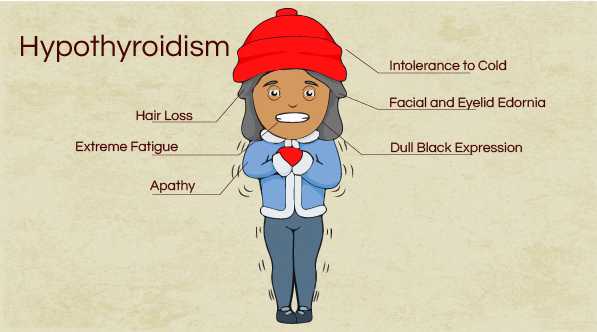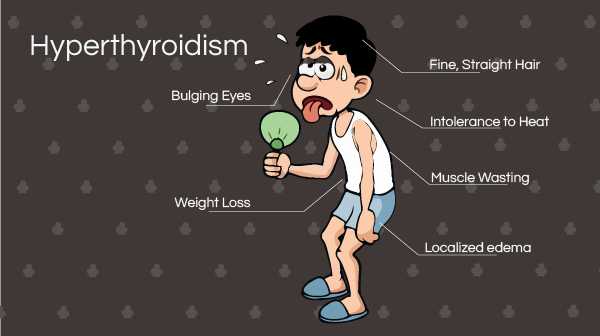In life, we choose to stay oblivious of a lot of things around us. For most of us, health is one such important aspect of our lives and therefore, it is prudent that we change our thinking and choose to create health awareness for ourselves and for those around us.
What Is Thyroid?
The thyroid is a small gland, located in front of the neck (not visible) and is under the control of the pituitary gland in our brain. It controls the metabolism of every cell in the body, whether they are located inside your brain or in your gonads. It communicates with these cells through the production of a hormone known as ’Thyroid Hormone’ or ‘Thyroxine’.
Hormone facilitates in metabolizing all that we intake and providing energy to the body for carrying out its functions. Therefore, in cases where thyroid hormone is found in lower quantity, the rate of metabolism is also slowed down and vice versa. In a matter of saying, higher levels of thyroid help in burning more calories stored in the body.
Production of Thyroid Hormone:
Iodine is required for the production of Thyroxine hormone. In cases of iron deficiency, there are incidences where the thyroid gland is enlarged and it is referred to as a goiter. It is prevalent among the people who live in hilly or mountainous areas and they are more prone to developing iodine deficiency and goiter.
Due to frequent land sliding in these areas, the top layer of the soil is eroded, which is abundant in iodine, and therefore, the crops grown in these crops are deficient in iodine. Hence the local inhabitants of these areas are prone to developing a goiter.
Also See: 7 Best Diabetologists in Lahore
Associated Disorders of Thyroid:
Thyroid disorders range from over-functioning (hyperthyroidism) or under-functioning (hypothyroidism) of the thyroid gland, irrespective of the presence of goiters. Normal functioning of the thyroids is referred to as Euthyroid. Generally, goiters are present in the newborn due to certain congenital defects or maternal thyroid disorders.
Furthermore, they can be due to diets, rich in goitrogenic substances or medicines, for example, excess utilization of cabbage, drugs used for heart conditions (amiodarone), psychiatric illnesses (lithium) and autoimmune conditions (methotrexate). These substances can give rise to thyroid dysfunction, either hyper- or hypo-, with or without goiter.
Signs and Symptoms of Thyroid Disorders:
It is imperative for the families that have a predisposition of developing thyroid gland’s disorders to be watchful of their lifestyle and dietary habits. Furthermore, they should have an awareness of the signs and symptoms common in patients with hypo- or hyperthyroidism. They can be found to be summarized in the following illustration:


It is important to note that not everyone with hypo- or hyperthyroidism may have a goiter. People with Euthyroid condition may or may not have goiters. However, goiters may enlarge in cases of thyroid disorders in order to cause cosmetic issues or create pressure on the neck.
There are instances where the goiter may stay of the same size for life without developing any dysfunction. Furthermore, the patients may experience the symptoms of air thinning or hair fall, coarsening and dryness of skin, progressive weight gain or weight loss despite an increased appetite.
Moreover, the incidence of sore tongue all the time (associated with B-12 deficiency in thyroid gland’s disorders), chronic diarrhea or constipation, excessive sleepiness and heat or cold intolerance. Coarsening or hoarseness of voice (similar to a frog’s croak), prolonged procrastination and laziness associated with hypothyroidism or anxiety with hyperthyroidism.


In females, the incidences of infertility and polycystic ovaries (due to hypothyroidism) are common. However, it is imperative to note that not all of these signs and symptoms may be associated with a thyroid disorder in all of the patients. Rather, the amount of time since these signs and symptoms have manifested may give the clinician the idea that thyroid disorder has developed or is in the premature stages of development.
5 Common Misconceptions Related To Thyroid Disorder:
Everyone who has a goiter has thyroid dysfunction:
NO! Not necessarily. A goiter can co-exist with normal thyroid function.
Thyroxine replacement in cases of hypothyroidism is a nuisance:
NO! It is a simplistic hormone replacement therapy whereby the insufficient nutrients are being replaced for the normal functioning of the human body.
Thyroid disorders are not infectious or contagious:
They are caused by the biochemical imbalance inside the human body and not a foreign substance, carrying the viral disorder.
Surgery is required to rectify all thyroid disorders:
NO! Only in certain conditions which may include large compressing goiters, cosmetic reasons, hyper-functioning of large goiters and thyroid cancers, is surgical intervention required for treatment.
Therefore, the center of the body’s normal functioning is the health of the thyroid gland which in turn directly relates to the working conditions of all the other organs. Hyper- or hypo-functioning of thyroid can lead to a prolonged state of disease, negatively affecting the response and behavior of the other organs. Therefore, as long as you focus on healthy food and keep yourself updated regarding the latest news, you will be able to lead a long healthy life! It is better to give your physician or endocrinologist a visit for review. You can consult with the best Endocrinologist in Karachi, Lahore, and Islamabad and other cities of Pakistan.





